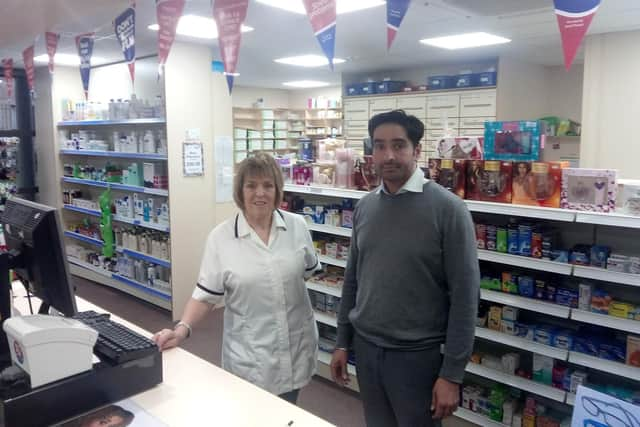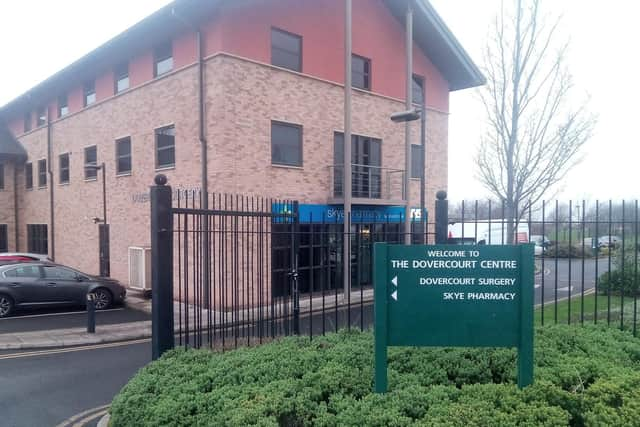Sheffield pharmacies warn medicine shortages could get worse, but patients urged not to panic


They have been hit by a national ‘surge’ in medicine shortages, which has affected patients across the country, and they fear uncertainty surrounding Brexit could make it even harder to secure supplies.
But they have urged patients not to panic, reassuring them there are almost always suitable alternatives to drugs which are temporarily out of stock and that contingencies are being put in place to safeguard supplies.


Advertisement
Hide AdAdvertisement
Hide AdIn the meantime, customers have been asked to show some understanding as pharmacies do their best to help in the face of what they have called ‘unprecedented’ pressures.
Ranjeev Sidhu, manager of Skye Pharmacy, in Manor, said there were typically around 16 medicines out of stock at any given time but that number had soared to around 80 in recent months.
He claimed the shortages, coupled with often vastly inflated prices for those medicines in short supply which could still be sourced, were making life increasingly hard for pharmacies nationwide.


“The pressure on pharmacies is growing every year, but medicine shortages have never been this bad before,” he said.
Advertisement
Hide AdAdvertisement
Hide Ad“We’re bearing the brunt of what happens, with some customers shouting at us when we can’t get the medication they’ve been prescribed.
“I would ask people to be patient and work with the pharmacies and GPs as we find a solution, especially when a particular medicine is out of stock for a long time.”
Mr Sidhu was reluctant to name specific drugs which were out of stock, but said they ranged from common painkillers to anti-psychotic medication and blood pressure pills.
Community Pharmacy Sheffield (CPS), which represents pharmacies across the city, said the shortages were down to a complex range of factors including the recent closure of two drug manufacturing plants and low prices in the UK for so-called generic, or non-branded, drugs making it a less attractive market for producers than other countries.
Advertisement
Hide AdAdvertisement
Hide AdWhile it is unclear whether Brexit is already playing a part, the organisation added, there are fears that uncertainty surrounding the UK’s future relationship with the European Union could exacerbate matters.
The Government has asked pharmaceutical companies to begin stockpiling in case of a no-deal Brexit, but pharmacies have been asked not to stockpile and patients have been advised to keep ordering their medicines as normal.
Claire Thomas, chief officer of the CPS, said: “We have seen a surge in medicine shortages recently and there are concerns the situation will get worse as a result of the uncertainty regarding Brexit.
“The added pressure of funding cuts for pharmacies means they’re really struggling to buy the medication patients have been prescribed.
Advertisement
Hide AdAdvertisement
Hide Ad“The increased workload for pharmacies is unprecedented. As well as working with GPs to find alternative medicines, they are often having to ring round many different suppliers to try to source the necessary stocks.”
When medicines are in short supply, pharmacies can be charged inflated prices with no guarantee the NHS will reimburse the extra cost.
Ms Thomas said that because pharmacies are running on such tight budgets, following years of funding cuts, many simply cannot afford to take that risk.
But she insisted there was no need for patients to panic.
“I would advise patients not to worry but to make sure they’re ordering their medication in plenty of time, usually when they're down to one week’s supply, rather than leaving it until the day before they run out,” she said.
Advertisement
Hide AdAdvertisement
Hide Ad“It’s also important they don’t panic about Brexit and attempt to stockpile their medication because that would only add to the problem.”
The Department of Health and Social Care said it had seen no evidence of medicine supply issues linked to EU exit preparations.
In a statement, it added: “We have well-established processes to manage and mitigate the small number of supply problems that may arise at any one time due to manufacturing or distribution issues and this has always been the case – every day over two million prescription items are successfully dispensed in England.
“We continue to work closely with industry and partners to ensure patients receive the medicines they need.”